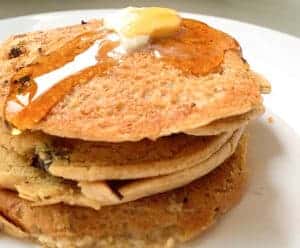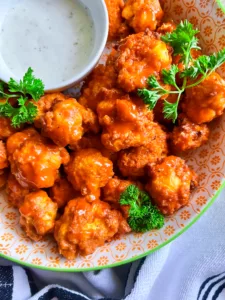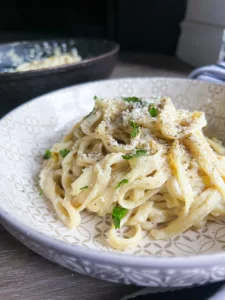Vegan Food & Lifestyle Blog, Vegan Food FAQ
Ingredients and Vegan Status of Margarine
Margarine is a popular spread often used as a substitute for butter. But what is it made of, and is it suitable for vegans? In this article, we’ll explore the ingredients and vegan status of margarine, and offer some tips for choosing the best option.
What Is Margarine Made Of?
Traditionally, people blended vegetable oils with water, salt, and a bit of milk to create margarine, resembling butter. Nowadays, the process is more intricate. Producers partially hydrogenate oils, turning them solid at room temperature and extending shelf life.
Afterward, these oils blend with water, salt, and emulsifiers for stability. Some margarine includes small dairy elements for flavor and creaminess. The final step involves cooling, shaping into blocks or tubs, and packaging for sale in stores.
Is Margarine Vegan?
Whether or not margarine is vegan depends on the specific brand and type you choose. Some kinds of margarine are made entirely from plant-based ingredients and are suitable for vegans. While others contain dairy products and are not vegan.
To determine whether a particular brand of margarine is vegan, you’ll need to check the ingredient list. Look for plant-based oils, such as soybean or canola, as well as emulsifiers and other vegan-friendly additives. Avoid brands that contain milk proteins, whey, or lactose. These are derived from animals and are not suitable for vegans.
It’s also worth noting that some kinds of margarine may be processed on equipment that also processes dairy products. While this doesn’t necessarily mean that the margarine itself is non-vegan, it may be a concern for those following a strict vegan diet. If this is a concern for you, look for margarine brands that are certified vegan. Or state clearly on the label that they do not contain any animal products.
Choosing the Best Margarine for You
When selecting margarine, prioritize both its vegan status and overall healthfulness. Some margarines, crafted from highly refined vegetable oils, may contain unhealthy trans fats, elevating heart disease risks. Opt for margarines made with healthier, minimally processed oils like olive or avocado oil for a better choice in promoting overall health.
A Nutritional Comparison of Margarine and Vegan Butter
People commonly use Margarine and Vegan Butter as popular spreads in cooking and baking. Both are plant-based alternatives to butter, but they possess unique nutritional profiles. In this chart, we’ll take a closer look at the nutritional information of margarine and vegan butter, so you can make an informed decision on which one to use.
| Food | Serving Size | Total Fat (g) | Saturated Fat (g) | Cholesterol (mg) | Sodium (mg) |
|---|---|---|---|---|---|
| Margarine | 1 tablespoon | 11-14 | 2-3 | 0 | 90-120 |
| Vegan Butter | 1 tablespoon | 11-14 | 2-3 | 0 | 90-120 |
Margarine and vegan butter both have similar nutritional profiles, with about the same amount of total fat and saturated fat. However, vegan butter is a better option for those who are looking for a dairy-free alternative. It’s important to always check the nutrition label of the product you are buying and consult a registered dietitian or nutrition expert for more accurate and specific information.
Conclusion: Vegan Status of Margarine
In conclusion, margarine serves as a spreadable product crafted by blending vegetable oils, water, salt, and emulsifiers. Its vegan status varies by brand and ingredients. When purchasing, scrutinize the ingredient list and opt for brands utilizing healthy, minimally processed oils, that align with a vegan diet.




